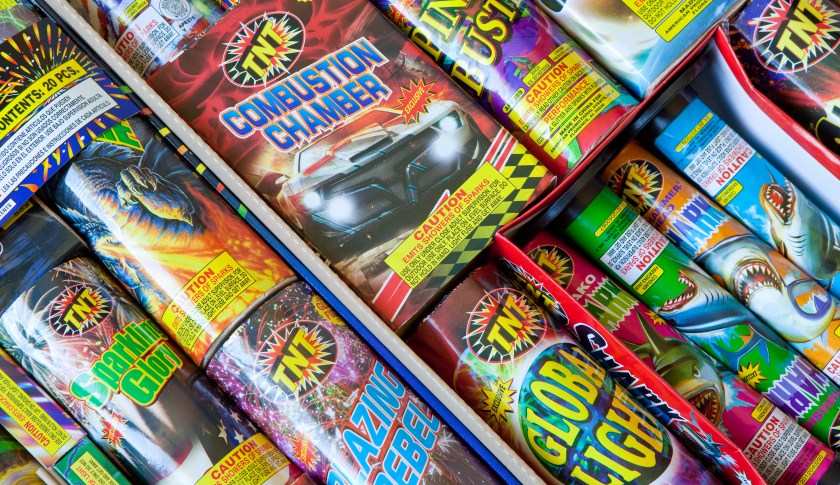Firework Dangers and How to Avoid Them
- Category: Motherhood & Pediatrics, Seasonal
- Posted On:

On the evening of July 4, 2015, at a holiday cookout, New York Giants football player Jason Pierre-Paul stood on a patch of grass across the street from the house where his family party was being held. A U-Haul® van was parked nearby that contained $1,100 worth of fireworks purchased by Pierre-Paul — enough for the entire neighborhood to enjoy.
Pierre-Paul spent most of that evening on the patch of grass, lighting off fireworks for his family and friends. He was about to “call it a night” when a friend pointed out that the van was nearly empty. Surely they had time to light the last handful?
He agreed. He attempted several times to ignite the next fuse, but the wind kept blowing out his lighter. Suddenly, success — and then a large green-and-white explosion that briefly engulfed Pierre-Paul’s 6’5”, 278-pound frame, dazing him and knocking him to the ground.
Pierre-Paul survived the accident, but much of his right hand was destroyed. Ultimately he would lose most of his thumb, all of his index finger, and much of his middle finger, causing him extreme pain and putting his career in jeopardy. (Read the full story at SI.com.)
With pool parties and family barbecues on the horizon, firework safety can sometimes be overlooked. But the dangers associated with them can’t be overstated. What can you do to avoid a similar injury this July?
Firework Safety Tips
To avoid injury, please follow these simple safety tips from fireworkssafety.org:
- Obey all local laws regarding the use of fireworks.
- Know your fireworks; read the cautionary labels and performance descriptions before igniting.
- A responsible adult should supervise all firework activities. Never give fireworks to children.
- Alcohol and fireworks do not mix. Save your alcohol for after the show.
- Wear safety glasses when shooting fireworks.
- Light one firework at a time and then quickly move away.
- Use fireworks outdoors in a clear area; away from buildings and vehicles.
- Never relight a “dud” firework. Wait 20 minutes and then soak it in a bucket of water.
- Always have a bucket of water and charged water hose nearby.
- Never carry fireworks in your pocket or shoot them into metal or glass containers.
- Do not experiment with homemade fireworks.
- Dispose of spent fireworks by wetting them down and placing them in a metal trash can away from any building or combustible materials until the next day.
- FAA regulations prohibit the possession and transportation of fireworks in your checked baggage or carry-on luggage.
- Report illegal explosives, like M-80s and quarter sticks, to the fire or police department.
If you or a loved one does sustain a firework-related injury, please rush to the nearest emergency room or urgent care facility.